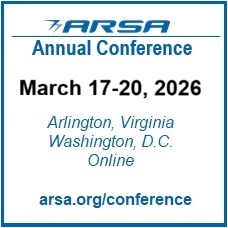Good Security is Good Business, ARSA Tells House Panel
Alexandria, VA, November 18, 2009 – “For the aviation maintenance industry, good safety and security practices are good business,” Aeronautical Repair Station Association (ARSA) Executive Vice President Christian A. Klein told members of the House Transportation Security & Infrastructure Protection Subcommittee at a congressional hearing on Nov. 18.
Klein told the panel that, “Even in the absence of the long-awaited Transportation Security Administration (TSA) repair station security rules, existing government regulations, industry practices, and the strong interest repair stations have in ensuring the airworthiness of their work and protecting their customers’ property create a high level of safety and security.”
As such, the flying public does not face any unusual or heightened risk because U.S. air carriers are increasingly using domestic and foreign contract maintenance companies, Klein said.
The subcommittee was examining security at repair stations in the absence of congressionally-mandated security rules for aviation maintenance companies. VISION 100, an aviation law enacted in 2003, required the Transportation Security Administration (TSA) to develop security rules for foreign and domestic repair stations. However, TSA did not release a draft proposal for the rules until Nov. 16, 2009.
Frustrated at many years of delay, Congress has banned the Federal Aviation Administration (FAA) from certificating new foreign repair stations. This has made it more difficult for U.S. aviation companies to set up new facilities to service overseas markets. ARSA and other industry groups have criticized Congress for punishing the aviation industry for TSA’s failure to act.
Because TSA has now released a draft rule, Klein said that Congress should lift the new foreign repair station certificate ban, which is “putting U.S. companies at a competitive disadvantage because they can’t open new facilities to service international customers in emerging markets.”
Klein also said that given the diverse nature of the aviation maintenance industry, as the TSA rulemaking proceeds, the subcommittee should work with the agency to ensure that the new rules do not a take a “one size fits all” approach to repair station security. Additionally, the agency must not impose new and unnecessary costs on the thousands of small U.S. aviation maintenance companies and thereby undermine the competitiveness of a vibrant sector of the U.S. economy.
Klein pointed to a recent study by AeroStrategy that determined the aviation maintenance industry’s impact on the U.S. economy is $39 billion per year and that 85 percent of the 4,122 repair stations in the United States are small and medium-size companies. AeroStrategy also found that North America is a major net exporter of aviation maintenance services, enjoying a $2.4 billion positive balance of trade in this area.
“You’ve got constituents who are going to have divert time and resources away from serving customers to comply with yet another federal regulation,” Klein told subcommittee members. “If TSA doesn’t get it right, it’s a good bet that you’re going to hear about it when you’re home.”
In addition to Klein, representatives from the Air Transport Association, three labor unions, FAA, TSA, and the Department of Transportation Inspector General’s office also testified at the hearing.
ARSA’s written testimony is available here.
###
About ARSA
ARSA has a distinguished, 25 year record of representing certificated aviation maintenance and alteration facilities. ARSA’s 700 members, a vast number of which are small businesses, are an important part of the $9 billion per year domestic air transportation support sector of the U.S. economy. According to the U.S. Census Bureau, this economic sector is responsible for more than 115,000 jobs and a total annual employer payroll of $3 billion.








